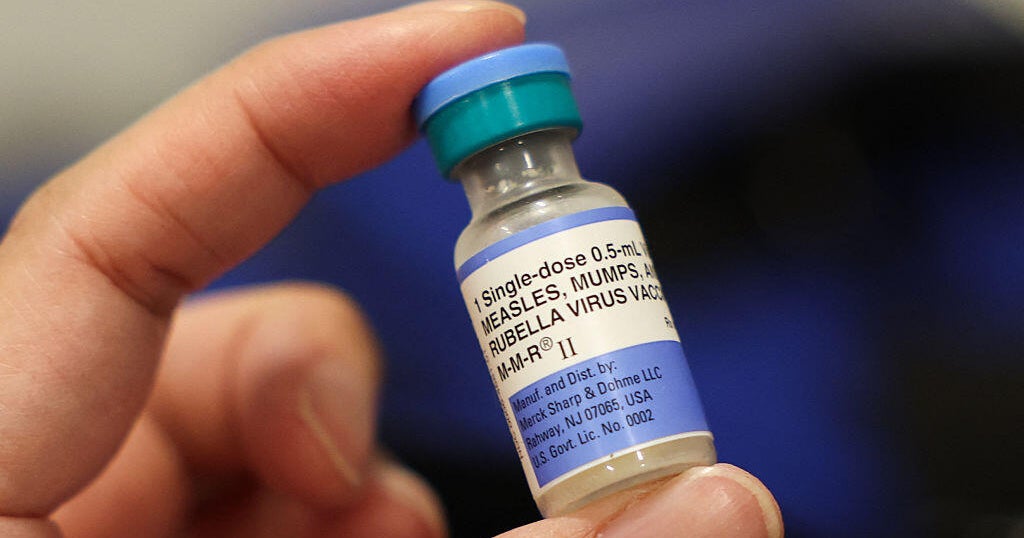Cervical cancer could be eliminated in most countries by 2100, study finds
Cervical cancer could potentially be eliminated as a major public health threat in the majority of the world by the end of this century, a new study says. According to the researchers, more widespread use of the human papillomavirus (HPV) vaccine, combined with increased cervical cancer screenings, could prevent millions of cases of the disease worldwide.
Cervical cancer is the fourth most common cancer in women across the globe with an estimated 570,000 new cases reported in 2018. It is responsible for killing 300,000 women each year.
Last year, the World Health Organization called for urgent action and coordinated efforts to eliminate the disease. The new study, published in The Lancet Oncology, outlines how this could be possible.
HPV, a group of more than 150 viruses that are sexually transmitted, is responsible for the majority of cervical cancers. It's estimated that HPV vaccines can potentially prevent up to 84 to 90 percent of cervical cancers.
In high-income countries like the United States, Canada and the U.K., cervical cancer could be eliminated as a public health problem within 25 to 40 years if the recommendations are adopted. Though the HPV vaccine is widely available here, many U.S. teens still don't get it.
Large disparities exist in cervical screening and HPV vaccination coverage between countries. Researchers estimate if that if nothing is done, 44.4 million cervical cancer cases would be diagnosed over the next 50 years — rising from 600,000 cases a year in 2020 to 1.3 million in 2069.
However, if measures are taken to ramp up vaccination rates and screenings in low- and middle-income countries, up to 13.4 million cases of cervical cancer could be prevented over the same time period.
"Despite the enormity of the problem, our findings suggest that global elimination is within reach with tools that are already available, provided that both high coverage of HPV vaccination and cervical screening can be achieved," Professor Karen Canfell from the Cancer Council New South Wales in Australia, who led the study, said in a statement.
What's more, the study predicts that if cervical screening were scaled-up to high coverage by 2020 — meaning all women are offered screening at least twice in their lifetime — an additional 5.7 to 5.8 million cases of cervical cancer could be prevented over the next 50 years. This could result in average rates of the disease falling to less than 4 cases per 100,000 in 149 countries by 2100.
In an accompanying editorial, researchers from Laval University in Quebec say the study will play "an integral role" in WHO's global strategy to accelerate the elimination of cervical cancer.
Who should get the HPV vaccinate?
The Centers for Disease Control and Prevention recommends the HPV vaccine as a routine vaccination for girls and boys at age 11 or 12, though it can be started as early as 9.
The vaccine is also recommended for females aged 13 through 26 and males aged 13 through 21 if they were not previously vaccinated. Young men who are gay or bisexual as well as transgender people who were not previously vaccinated should receive the vaccine through age 26.
The vaccine has been the source of some controversy in the U.S., with overall lower vaccination rates than countries like Canada, Australia and Britain. Some parents choose to skip the vaccine rather than acknowledge their child will eventually be sexually active. Others have voiced concern about its safety, though dozens of studies have confirmed it is safe and effective.
The FDA recently approved the use of the HPV vaccine in adults age 27 to 45, but the vaccine only works if the recipient hasn't had HPV before, and by that age many people have already been exposed. Individuals in this age group who have not been vaccinated should speak with their doctor.
The viruses are very common and many people experience no symptoms and need no treatment. However, some strains of HPV can lead to genital warts or eventually cancer.



